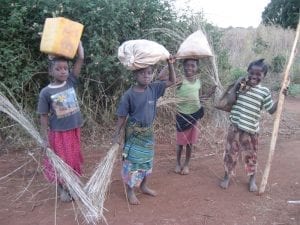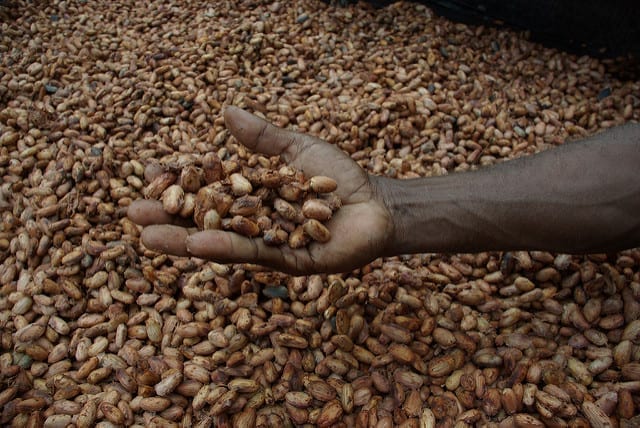The U.S. Supreme Court has previously refused to hear cases filed against chocolate companies overseas.
Eight children have launched a lawsuit against several of the world’s biggest chocolate companies, accusing brands such as Nestlé, Hershey, and Mars of profiting from slave labor used on Ivory Coast cocoa plantations.
According to The Guardian, the lawsuit states that a number of highly-profitable, globally-recognized brands have aided and abetted the enslavement of “thousands” of children in the West African nation.
The defendants include Nestlé, Cargill, Barry Callebaut, Olam, Hershey, and Mondelēz.
The Guardian notes that the lawsuit was filed in federal court in Washington, D.C., earlier this week. The child-plaintiffs are being represented by International Rights Advocates, an organization which sponsors litigation against U.S.-based corporations accused of committing human rights abuses abroad.
While other slavery-related lawsuits have been filed against Hershey and its counterparts, this attempt marks the first time the cocoa industry has been taken to account in American courts.
The Guardian observes that, while all of the minor plaintiffs are from Mali, they were purportedly abducted and forced to work on cocoa plantations in Ivory Coast, while produces 45% of all cocoa worldwide.

The children’s story of abduction and exploitation is neither unique nor particularly uncommon—the lawsuit states that thousands of minors from other parts of West Africa have endured similar ordeals.
In the past, chocolate companies—along with other enterprises which use cocoa in their products—have protested allegations they profit from slavery. Nestlé, for instance, says that it has rigorous supply-chain controls, which blacklist local firms suspected of using child slavery.
However, this lawsuits claims that, even if companies like Hershey and Nestlé do not own or control plantations which use slave labor, they nonetheless “knowingly profited” from child exploitation.
International Rights Advocates noted in their filing that plantations which use slave labor are able to provide cocoa at unusually low prices—prices that any firm paying adults a local wage could not likely afford.
One of the plaintiffs, says The Guardian, claims to have been only 11 years old when he was promised a job in Ivory Coast. A contractor approached the child, telling him he could earn about $40 per month working on a plantation.
He agreed, and was soon transported to Ivory Coast. Once there, however, the boy was forced to work for two years without ever being paid. On the plantation, he was often required to handle pesticides and other hazardous chemicals without safety training or protective equipment.
He, like many of the other plaintiffs, says plantation oversees promised to pay him after harvest—but the promised payment never came, and he was compelled to stay put for yet another season.
The lawsuit, was reported by The Guardian, charges that such abuses are not only “morally repugnant,” but that they contribute to Ivory Coast’s rampant poverty by depressing wages and decreasing economic opportunities for qualified adults.
All of the companies named in the suit told The Guardian that they are not aware of potential child abuse within their supply chain and make active, ongoing efforts to disavow any plantations which profit from the same.
Sources
Children sue Nestlé, Mars and Hershey for child slavery in Ivory Coast
Mars, Nestlé and Hershey to face child slavery lawsuit in US


Join the conversation!